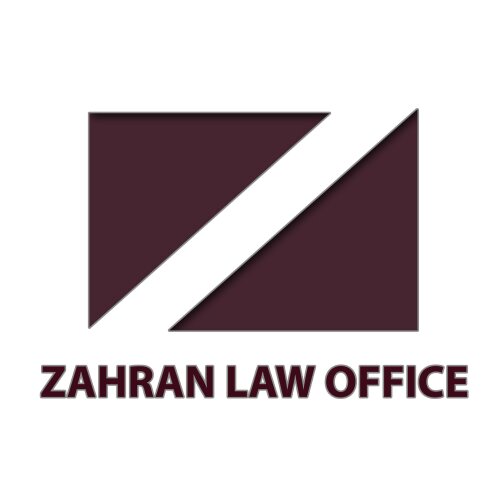Best Bad Faith Insurance Lawyers in Egypt
Share your needs with us, get contacted by law firms.
Free. Takes 2 min.
Or refine your search by selecting a city:
List of the best lawyers in Egypt
About Bad Faith Insurance Law in Egypt
Bad faith insurance refers to situations where an insurance company fails to fulfill its obligations to policyholders. In Egypt, while insurance is a growing market, there is not yet a highly developed body of laws specifically aimed at regulating bad faith practices. However, the principles of general contract law in Egypt, as dictated by the Civil Code, play a crucial role in governing insurance contracts. These laws require insurers to act in good faith and protect the interests of policyholders against unjust denials or delays in claims processing.
Why You May Need a Lawyer
There are several common scenarios in which individuals may require legal assistance with bad faith insurance:
- Unreasonable Denial of Claims: If your legitimate claim is denied without proper justification, an attorney can help challenge the insurer's decision.
- Delays in Claims Processing: Protracted delays in handling claims can financially strain policyholders, and legal intervention may expedite the process.
- Mismatched Coverage Explanation: If there is a stark discrepancy between what was promised and what is being delivered in terms of coverage, legal advice may be necessary.
- Low Settlement Offers: Insurers may offer inadequately low payouts which do not cover your losses. A lawyer can negotiate a fair settlement on your behalf.
- Policy Revocations: Sudden policy cancellations without valid reasoning can be contested legally.
Local Laws Overview
Bad faith insurance claims in Egypt are governed by general principles under the Egyptian Civil Code, which mandates honesty and transparency in contractual dealings. Key aspects include:
- Contractual Obligation: Insurance companies are obligated to adhere to terms specified within the contract and cannot alter or dismiss responsibilities without cause.
- Fraud Prevention: Both insurers and insured parties must avoid misrepresentation and fraudulent practices.
- Arbitration and Dispute Resolution: Many insurance disputes are resolved through arbitration or mediation, as promoted by the Egyptian insurance regulatory authorities.
- Consumer Protections: Policyholders are protected under consumer rights laws which aim to prevent exploitative practices by insurers.
Frequently Asked Questions
What is considered bad faith by an insurance company in Egypt?
Bad faith can involve unjustified claim denials, failure to investigate claims thoroughly, delays in payment, or interpreting policy terms unreasonably to avoid payouts.
Can I sue my insurance company for bad faith in Egypt?
Yes, policyholders can file a lawsuit against their insurance company if they believe the company has violated its contractual obligations or acted in bad faith.
How long do I have to file a bad faith insurance claim in Egypt?
The statute of limitations for filing a claim typically depends on the terms outlined in the insurance contract and should conform to Egyptian Civil Code provisions.
What kind of compensation can I receive from a bad faith claim?
Potential compensations include the unpaid benefits from the insurance policy, legal costs, and, in certain cases, punitive damages for the insurer's actions.
Do I need to exhaust the internal dispute resolution process before taking legal action?
It is generally advisable to first use the insurance company’s internal complaint process before pursuing litigation, as it may resolve the dispute more quickly.
Should I document my communications with my insurer?
Yes, keeping detailed records of all communications with your insurer is crucial to support your case in a bad faith claim scenario.
What evidence is needed to prove bad faith insurance in Egypt?
Evidence may include the insurance policy, denial letters, correspondence, and any other documents that can demonstrate the insurer’s lack of justification.
Are there governmental bodies that oversee insurance practices in Egypt?
The Financial Regulatory Authority (FRA) oversees insurance activities in Egypt, ensuring compliance with laws and regulations.
Can a lawyer negotiate with the insurance company on my behalf?
Yes, an experienced lawyer can effectively communicate and negotiate with the insurance company to reach a favorable resolution.
How do I choose the right lawyer for my bad faith insurance case?
Look for a lawyer with experience in insurance law, specifically in handling bad faith cases, and one with a strong track record of successful outcomes.
Additional Resources
Below are resources that can be useful for those seeking legal advice in bad faith insurance:
- Egyptian Financial Regulatory Authority (FRA): The oversight body for insurance practices in Egypt.
- Insurance Law Experts: Specialized law firms or legal experts focusing on insurance law and consumer rights.
- Consumer Protection Agencies: Organizations that provide information and support for consumers dealing with insurance disputes.
- Legal Aid Services: Organizations that offer legal support and advice to those who may not afford private legal services.
Next Steps
If you believe you are a victim of bad faith insurance practices and need assistance, consider taking the following steps:
- Document all interactions with your insurance provider, including emails and phone conversations.
- Review your insurance policy in detail to understand your coverage and rights.
- Consult with a qualified insurance lawyer who specializes in bad faith claims to discuss your case and options.
- Contact relevant regulatory bodies like the FRA for guidance and potential mediation.
- Consider joining support networks with other policyholders to share experiences and strategies for dealing with insurance disputes.
Lawzana helps you find the best lawyers and law firms in Egypt through a curated and pre-screened list of qualified legal professionals. Our platform offers rankings and detailed profiles of attorneys and law firms, allowing you to compare based on practice areas, including Bad Faith Insurance, experience, and client feedback.
Each profile includes a description of the firm's areas of practice, client reviews, team members and partners, year of establishment, spoken languages, office locations, contact information, social media presence, and any published articles or resources. Most firms on our platform speak English and are experienced in both local and international legal matters.
Get a quote from top-rated law firms in Egypt — quickly, securely, and without unnecessary hassle.
Disclaimer:
The information provided on this page is for general informational purposes only and does not constitute legal advice. While we strive to ensure the accuracy and relevance of the content, legal information may change over time, and interpretations of the law can vary. You should always consult with a qualified legal professional for advice specific to your situation.
We disclaim all liability for actions taken or not taken based on the content of this page. If you believe any information is incorrect or outdated, please contact us, and we will review and update it where appropriate.
Browse bad faith insurance law firms by city in Egypt
Refine your search by selecting a city.









